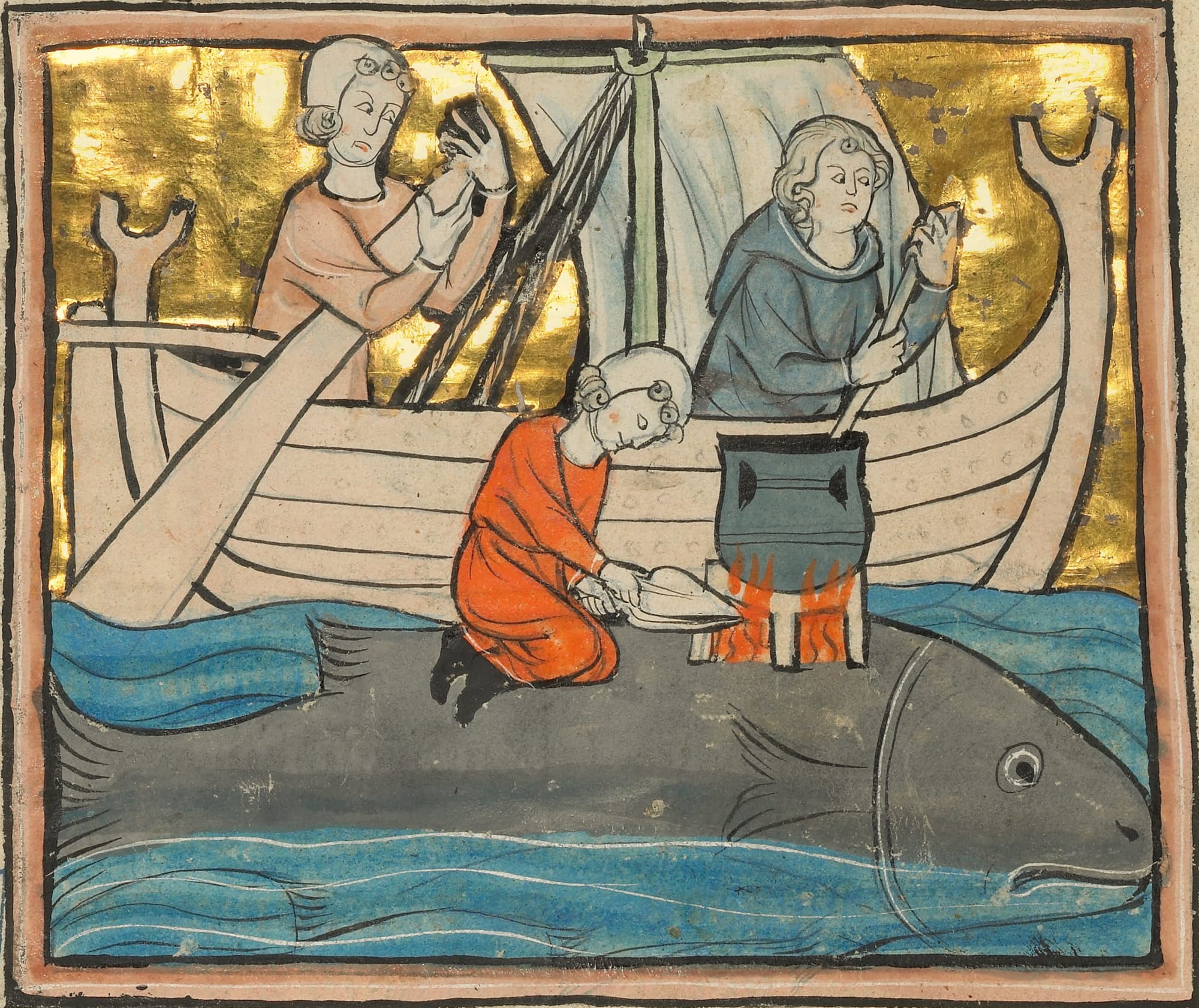Every socialist wants to create a world that looks different from our own, but not every socialist wants to pursue the same method of reaching that goal. Anarchists, for example, believe the State should be abolished at first opportunity in order to achieve self-determination and liberation. Others, such as Marxist-Leninists and social democrats, see seizing control of the State as a viable method of creating a new world. However, the latter belief relies on a misunderstanding of what the State fundamentally is. If one accurately conceptualises the State, it becomes clear that it can never provide true liberation.
In this short essay, I will first describe the key characteristics of the State in the ancient world. I will then argue that the modern State, although more complex, retains its ancient precepts as a centralised set of institutions that accumulate resources, protect them violently, and govern them for the benefit of an elite group. Finally, I will argue that modern ideologies, such as liberal democracy or nationalism, are faces that obscure the unchanging nature of the State.
In short, if the State has not changed its intrinsically oppressive nature for thousands of years, why would it change now, and how could it in any meaningful sense be changed for the better?
The State in the Ancient World
The State, by which I mean a centralised body of institutions that governs a territory and population, has existed for about six thousand years. One of the earliest States formed in Mesopotamia around 3500 BCE. Meanwhile, the pharaonic kingdoms of Egypt began to emerge in 3200 BCE, and the Shang dynasty writers began to record the histories of centralised States in the China’s Yellow River basin in about 1200 BCE. Given how diverse the history of the State is, appearing one after another around the world and persisting to today, one would be forgiven for believing that the State was a natural consequence of human development.
Human history, however, is about three hundred thousand years old — roughly fifty times longer than the ancient State. States, then, are a late addition to the human story. Moreover, these States did not appear overnight. Instead, they developed out of a plethora of other human societies and social organisations that existed for tens of thousands of years before them. Thus, it is important to examine the context of their creation, how they were a conscious effort to consolidate elite power, and what oppression they brought to bear on those they conquered — and on their own citizens.
When early States first emerged, they each tended to gain power and exert themselves in similar ways. Some of these common aspects were identified by James C. Scott in Against the Grain: A Deep History of the Earliest States:
- The appropriation of the farming of grain crops, such as wheat or maize, which provided ample food for population growth and a simple, easily measurable tool for taxation.
- The building of city walls and defences to protect state resources.
- The development of writing systems and record-keeping, for the purposes of lawmaking, administration, and taxation.
- The forced reproduction of labour, either through slavery or bondage, in order to create a reliable base for resource extraction.
Not every State will exhibit these characteristics in the same way, or to the same extent, but they are useful signposts in examining ancient societies. Furthermore, each of these features strengthens the others. For example, an exploited workforce creates goods, which aids taxation. Taxation then aids the accumulation of wealth, which helps build walls. Walls, in turn, protect the lawmakers and tax collectors that exploit the workforce. And so on.

As these States grew in power, they tended to centralise and entrench themselves. This is the process through which the elite caste of the polity self-perpetuates through the institutional structures that it creates. These structures give the ruling class a sense of permanence solidified by physical structures and codified laws. These laws are, of course, written by state administrators and lawmakers, which are then replicated and violently enforced on a large scale through the State’s territory.
In the Roman Empire, for example, power and infrastructure were incredibly centralised, albeit with mixed results. In the Imperial era when Roman power was more directly consolidated under single leadership, the foundation of colonies backed by extensive infrastructure became a key tactic. Some of these colonies, usually the most successful, are sometimes described as ‘little Romes’ due similarities between the structure of each Roman power centre and the capital. Physically linking these colonies to Rome held both ideological and practical significance for the Emperor, whose power had to be seen to emanate from the heartland. The famous adage, ‘all roads lead to Rome,’ is correct and a design feature: this allowed for more effective centralised control over the Empire.
Meanwhile, in ancient China, bureaucrats were schooled and had to pass exams, and developed their own practices and cultures that helped reproduce the administrative power of the various dynasties, separating the government class from the people and creating a large-scale centralised empire. The Mauryan Empire’s centralised imperial system (approx. 322–185 BCE in modern-day India) was upheld on a regional level by local princes, councils, and administrators, bringing a political unity among the upper class not yet seen in Southeast Asia. These permanent structures, whether political (such as a council) or material (walls or castles) developed a central, largely entrenched core of elite power.
Although non-State societies (such as nomadic groups or tribes) also had elite power, State societies ensured that this phenomenon was exaggerated institutionally and politically. In States, these centres also took on an entrenched character, whether in a castle, palace, or sprawling capital city. That power can involve both an internal consolidation of the State machinery, such as in China or the Mauryan Empire, or in the externalisation of said machinery through colonies and power centres, as we saw with the Roman Empire. In either case, internal or external, power is routed through the elite and its bureaucracy.
The entrenched, centralised, and legalistic institution of the State benefits one group in particular: the ruling class. Many societies (if not most) have some kind of ruling group, class, or caste. In a State, however, that ruling class is aligned to an institution that protects and reproduces it. Compare, for example, the Romans and the Huns. The Huns under Attila (434–453 CE) controlled considerable territory, but that territory was held in a confederation of tribes rather than a State. Shortly after Attila died, the Hunnic Empire fell, with no centralised structure to preserve a ruling elite. The Roman State, meanwhile, largely remained a State with defined structures, rules, and class groups despite changes in leadership.
Members of the privileged class in general aspire to the solidification of their rule through the creation and/or strengthening of some kind of State structure. Even non-state society elites tend to expand or maintain their power by converting their society to some kind of State. The Mongols, for example, maintained an administrative empire through the institutions that they absorbed. And the Mongols were late to the game: other non-State societies were doing this hundreds of years prior. The descendents of the Germanic and Gallic ruling classes whose people inherited Europe after the fall of Rome did not remain in tribes, but instead drew up law codes, built castles, and maintained tax collection and organised trade. Institutionalising the hegemony of an elite group strengthens a leader, their dynasty, and more importantly, their status.

Taken on its own, the manner in which the State has been described here is simplistic, but ultimately important. The State in its ancient days constitutes something of a core of what the State has always been. In simple terms, the State is three things: an accumulator, a tax collector, and a tool. It accumulates resources and people, it extracts wealth from them to prop up institutions and boundaries, and it does so as a tool of the rule of some elite group.
The history of the ancient State is also a history of the origins of State formation. It is a saga of elite groups securing power through centralised political institutions, and then expanding that power through accumulation and control. The State then sets in motion a chain of elite reproduction until it is broken, taking the State itself down with it.
The State in Modern Society
One might argue that the nature of the modern State, after a few thousand years, is radically or even unimaginably different from the ancient State. After all, is it not the case that the modern State is far more complex, expansive, and liberated from its despotic origins? State-sanctioned slavery, for instance, has (at least nominally) been abolished; in modern liberal states, roving bands of militiamen (mostly) can’t seize your home and land. Instead, we have complex systems of electoral input from the people and ostensibly consensual and effective modes of collecting tax from every citizen, rich or poor. Yet under all this alleged progress, the core characteristics that we identified in the ancient State remain. Let’s turn back to Scott’s four characteristics of the ancient State, and think about how they apply to the modern one.
- Grains might not be the focus of tax collection, but the accumulation and exploitation of resources (fuel, land, food) remains central to the State’s economic power.
- Castles might be outdated, but States build walls and fences, create border control agencies, and recruit police as a way of protecting the State’s economic and political power.
- The lawmaking and administration structure of the State is now much more invasive, expansive, and complex. State administrators regulate everything from tax collection to the types of food we are allowed to eat.
- Labour is still forcibly reproduced by the State, though more indirectly. If not through direct bondage or slavery, a system of wage-slavery threatens poverty and suffering if people do not (or cannot) work.
That each of these aspects have become more complex is not debated. However, these layers of complexity might, to some degree, be described as façades. Take nationalism, for example. Nationalism is a simple idea: you have a nation of people with a theoretically common identity, and that identity should be advocated through a political movement. States engage in nationalism by creating a clearly defined sense of citizenry with a homogenised history and culture, even if that history and culture is premised on national myth. In either case, the State associates the national identity with itself as its arbiter and protector.
Yet this sense of peoplehood is in many ways illusionary, since, as in the ancient State, the governing class is still separated from the class that is governed. A perceived cultural connection to your politicians is not a material one since you do not interact with society on the same grounds. The politician is above you, using national identity to provide you the comforting thought that your State belongs to you. It does not, and never has. Wipe away that mirage, and you see something not too dissimilar to the relationship between the old ruling elites and their subjects in ancient States.
The illusion of nationalism is directly connected to that of liberal ‘democracy.’ Indeed, State democracy is anything but democratic, as argued by CrimethInc:
‘[R]epresentative democracy promises the opportunity to rule each other on a rotating basis: a distributed and temporary kingship as diffuse, dynamic, and yet hierarchical as the stock market. In practice, since this rule is delegated, there are still rulers who wield tremendous power relative to everyone else.’
When politicians say things like ‘the will of people,’ or speak in terms like ‘we’ and ‘us,’ they are associating themselves, and the State, with the people they rule over. This may sound similar to nationalism, but that is not a coincidence since the ‘we’ of the nation is being tied to the ‘we’ of the democratic body. Add in some ‘democratic’ processes like representative voting (a right which different groups of citizens have had to fight for), and you have got a convenient way for the State to act like it is one and the same with its people as opposed to being something that rules over its people. Ancient States engaged in prototypical versions of this, usually by spreading religions or imperial cults, but never could they dream of engaging with it on the same scale or of obscuring it with superficial notions of liberalism. The central components of an ancient State — such as the courts, jails, armies, and tax collectors — still exist. The centralised State, accumulating and protecting resources, remains, as does its fundamentally coercive nature.

Let’s turn for a moment to the notion of a government by the people and for the people, as democracy claims to be. The problem with applying this notion to a State is that creating a new State inevitably involves the institutionalisation of a governing class or elite group, which then uses those state institutions to maintain their position (consciously or otherwise). Even if there were no elite group in a society, the process of making a State would create one, since a State is a centralised tool for governing. This is part of the reason why anarchists believe we should avoid the State altogether. I will quote Errico Malatesta at length here, as he gets to the core of the issue:
‘In any case, even if a government wanted to, it could not please everybody, even if it did manage to please a few. It would have to defend itself against the malcontents, and would therefore need to get the support of one section of the people to do so. And then the old story of the privileged class which arises through the complicity of the government starts all over again and, in this instance, if it did not seize the land would certainly capture key posts, specially created, and would oppress and exploit no less than the capitalist class.
The rulers accustomed to giving orders, would not wish to be once more members of the public, and if they could not hold on to power they would at least make sure of securing privileged positions for when they must hand over power to others. They would use every means available to those in power to have their friends elected as the successors who would then in their turn support and protect them. And thus government would be passed to and fro in the same hands, and democracy, which is the alleged government of all, would end up, as usual, in an oligarchy, which is the government of a few, the government of a class.
And what an all-powerful, oppressive, all-absorbing oligarchy must be one which has at its service, that is at its disposal, all social wealth, all public services, from food to the manufacture of matches, from the universities to the music-halls!’
The reason why States are often so undemocratic is because they were never intended to be governed from the bottom up, and simply cannot be. A centralised set of institutions ruling in a particular space cannot be ruled by everybody, and so the governing class and a ruling elite command it to the benefit of themselves and for the reproduction of their own power. For true democracy, one must necessarily begin by removing the State first.
In the State’s role as a governing body, accumulating and protecting resources (and people), it naturally sets apart the governors from what is governed. The State is its own beast. This was summed up well again by Malatesta when he wrote about the role of government:
‘A government, that is a group of people entrusted with making the laws and empowered to use the collective power to oblige each individual to obey them, is already a privileged class and cut off from the people. As any constituted body would do, it will instinctively seek to extend its powers, to be beyond public control, to impose its own policies and to give priority to its special interests.’
Malatesta’s point can be viewed as common sense to some, as we all know and often agree that politicians serve their own interests. This does not change with each politician, governor, or dictator. Rather, the government wields a State for the benefit of its own class at the expense of others. Even when the governors seem to be in conflict, their underlying shared class interest remains intact. Businesspeople may war with politicians, and politicians may war with aristocrats and monarchs, but ultimately each of these groups have a great deal in common: their proximity to the State machinery and their separation from those governed by it. Claims that we all belong to one nation, or that we all have a part in democracy, simply obscure the reality that a social elite is wielding the State for its own ends. The difference in power between you, a modern citizen, and a subject of an ancient kingdom might not be as dramatic as you might imagine. Our voice in this system is minimal — and that is why we must step away from it completely.
Conclusion
Over the last six thousand years, the fundamentals of the State have remained the same despite appearances. Castle walls and fortresses have been replaced by border fences and military bases; local militias and judges by professional police forces and prison services; and tax-collectors by public treasuries and monetary departments. Each of these coercive institutions protect the resources accumulated from wage labour, domestic servitude, and colonialism, all for the benefit of a ruling elite. Each of these elements reentrench those who are close to the state apparatus, and each of them demonstrate the coercive nature that is central to the permanence of the State.
The ancient State was a strongly established administrative and legal apparatus — backed by grains, taxes, and walls — that secured ruling class power. Not just the power of a ruling class: the ruling class, no matter who populates it at any point in time. Even governing institutions are populated by the oppressed class, such as in the ‘dictator of the proletariat,’ this oppressed class would in time become the new ruling class. History shows us how States inevitably consolidate rule amongst a few and can only be made to listen to the people through extreme effort. The proletariat/the citizenry/the masses, being the many, cannot wield something that has been constructed to govern on behalf of a few except as tyrants. A form of social organisation that is controlled by the many will ultimately look completely unlike a State.
So what does this mean for us? It means understanding what the State is, and therefore abandoning it as a model for society. The State is an apparatus that establishes the conditions for control — not for all, but for those who wield its power. The traits that give the State its power are the very ones that separate those who govern it from us, whether that is an ancient wall or a modern police force. Therefore, the tempting notion of wielding state power on behalf of the common people is doomed to fail.
Photo by yeswanth M on Unsplash
Special thanks to our patrons, who make everything we do possible:
Mr Jake P Walker, Josh Stead, Aryeh Calvin, Meghan Morales, Kimonoko, Maria Rahim, Choatic Capybara, Christian Kennedy, Cy.Maggran, Alex Paterson, Laetitia Lüke, Paul Treadwell, La Val, Bogdan Ovidiu Gheorghiu, Joshua Akapo,
If you would like to support us and help us grow, consider becoming a Patron:





